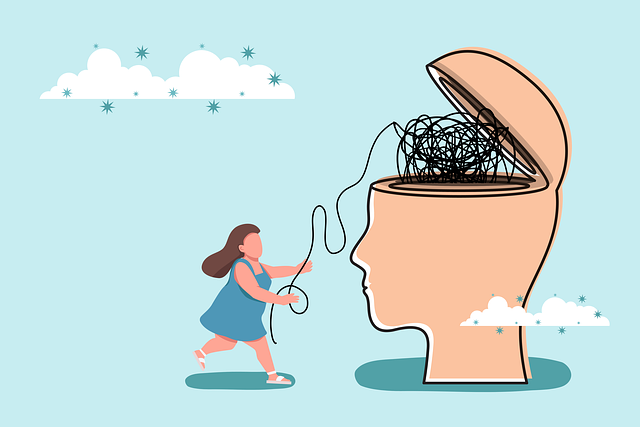Chronic stress, a common consequence of today's fast-paced life, can lead to severe mental health issues. Wheat Ridge Suicide Prevention Therapy (WRSPT) offers a holistic approach to stress management, focusing on mindfulness, self-care, and community support. By combining individual counseling, group therapy, and skill-building workshops, WRSPT equips individuals with tools to recognize and manage stress, enhancing resilience and overall well-being. This strategy is particularly valuable for mental health professionals aiming to maintain work-life balance while improving risk assessment skills. Through evidence-based techniques like mindfulness and structured self-care routines, individuals can effectively reduce stress levels and build long-term mental wellness.
Stress management is a vital skill for navigating life’s challenges. This article explores effective strategies to combat stress and its impact on mental health, with a focus on the beneficial role of Wheat Ridge Suicide Prevention Therapy. We delve into understanding stress, practical techniques, mindfulness integration, and self-care for long-term resilience. By employing these methods, individuals can foster adaptability, enhance well-being, and promote a healthier mind.
- Understanding Stress and Its Impact on Mental Health
- The Role of Wheat Ridge Suicide Prevention Therapy in Stress Management
- Practical Techniques for Effective Stress Mitigation
- Integrating Mindfulness and Self-Care Strategies for Long-Term Resilience
Understanding Stress and Its Impact on Mental Health

Stress is a natural response to various life challenges, but when it becomes overwhelming, it can significantly impact mental health and overall well-being. It’s essential to understand that stress isn’t always negative; moderate levels can motivate individuals to achieve their goals. However, chronic or prolonged stress can lead to severe consequences, such as anxiety, depression, and even thoughts of suicide, as seen in many cases managed by Wheat Ridge Suicide Prevention Therapy. This is where the role of effective stress management techniques becomes crucial.
Mental health professionals emphasize that recognizing and addressing stress early on is vital for maintaining a healthy mind. The impact of stress can be far-reaching, affecting not just an individual’s emotional state but also their physical health. For instance, high-stress levels are often linked to increased blood pressure, weakened immune systems, and sleep disturbances. Therefore, incorporating strategies like mindfulness, exercise, and social support, as advocated in Mental Health Policy Analysis and Advocacy, can be transformative. Crisis Intervention Guidance often emphasizes the importance of these techniques in preventing and managing stress-related crises, fostering better resilience and self-esteem improvement.
The Role of Wheat Ridge Suicide Prevention Therapy in Stress Management

Wheat Ridge Suicide Prevention Therapy (WRSPT) plays a pivotal role in equipping individuals with effective stress management techniques. This therapeutic approach is designed to foster resilience, a key factor in mitigating stress and its potential harmful effects on mental health. WRSPT goes beyond traditional therapy by offering comprehensive strategies that target the root causes of stress, promoting emotional well-being, and enhancing coping mechanisms. The program’s holistic nature, which includes individual counseling, group support, and skill-building workshops, enables participants to develop a robust mental defense against stress-related challenges.
Incorporating WRSPT into one’s self-care routine is particularly valuable for mental health professionals who are often exposed to high-stress environments. Beyond personal growth, this therapy facilitates risk assessment, enabling professionals to recognize early warning signs in themselves and their clients, thereby improving overall Mental Health Awareness. By prioritizing stress management through WRSPT, professionals can enhance their ability to provide quality care while maintaining a healthy work-life balance.
Practical Techniques for Effective Stress Mitigation

In today’s fast-paced world, stress management has become an essential aspect of maintaining good mental health. Incorporating practical techniques like Compassion Cultivation Practices and Mind Over Matter principles can help individuals effectively mitigate daily stressors. These evidence-based approaches encourage a mindful and compassionate mindset, fostering resilience and emotional well-being.
One effective strategy is implementing a structured Self-Care Routine Development for Better Mental Health. Dedicating time to activities that promote relaxation, such as meditation, deep breathing exercises, or engaging in hobbies, can significantly reduce stress levels. Moreover, seeking professional guidance from therapists specializing in Wheat Ridge Suicide Prevention Therapy offers valuable tools and support tailored to individual needs.
Integrating Mindfulness and Self-Care Strategies for Long-Term Resilience

Integrating mindfulness and self-care strategies is a powerful approach to building long-term resilience against stress and promoting mental wellness. Wheat Ridge Suicide Prevention Therapy recognizes the profound impact these practices can have on individuals’ overall well-being. By incorporating mindfulness techniques into daily routines, people can develop a deeper sense of calm and presence, allowing them to better navigate challenging situations. This proactive approach not only enhances coping mechanisms but also fosters self-awareness and emotional regulation.
In addition to individual therapy sessions, community outreach programs can play a pivotal role in disseminating these valuable tools. Initiatives focused on mental wellness journaling exercises, for instance, encourage individuals to reflect on their experiences and emotions, further cultivating mindfulness. Similarly, mental illness stigma reduction efforts within communities create safe spaces for open dialogue, enabling individuals to connect, support one another, and embrace holistic well-being strategies, such as self-care practices designed to strengthen resilience over time.
In navigating the complex landscape of stress management, adopting evidence-based practices like Wheat Ridge Suicide Prevention Therapy can significantly enhance mental well-being. By understanding stress, leveraging practical techniques, and integrating mindfulness with self-care strategies, individuals can foster resilience and mitigate long-term impacts on their mental health. These integrated approaches offer a holistic path to overcoming stress, ensuring folks are equipped to handle life’s challenges with greater equanimity.














